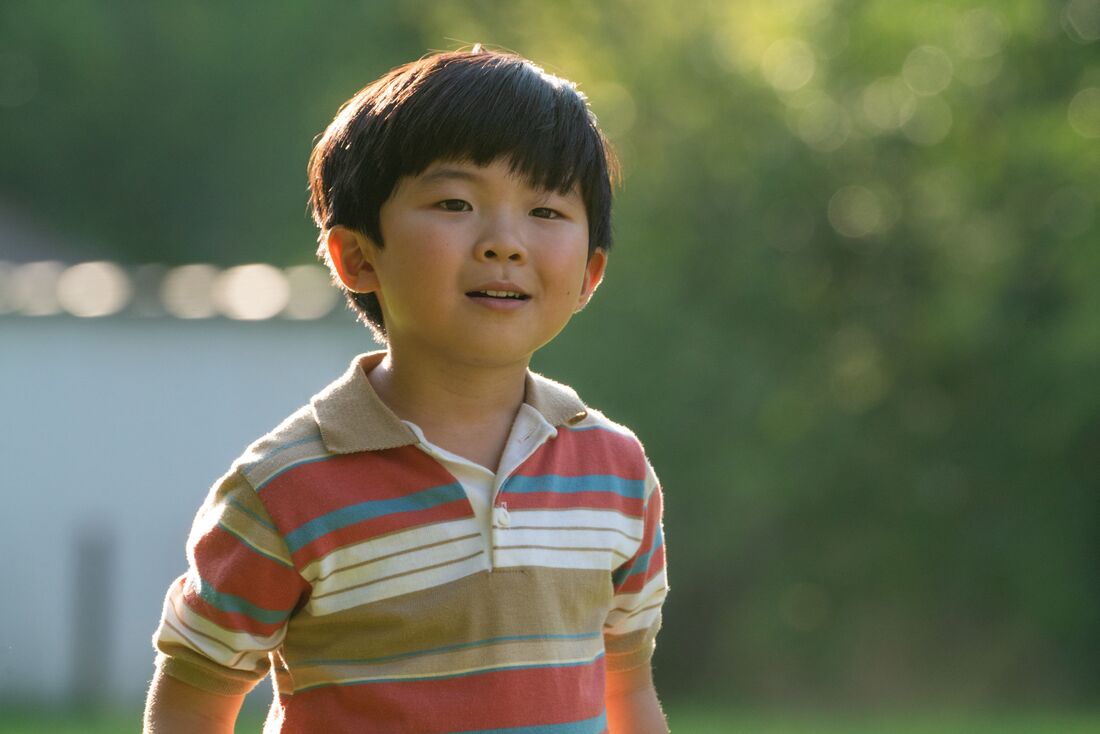Evan D.The mythos of the American Dream has been a staple of US cinema as long as the medium has existed. Our uniquely American egos have produced countless tales of hardscrabble folks finding success in the land of opportunity through sheer force of will. Now, the protagonists of those films have more often than not been white. As the diversity of film has increased in recent years, immigrants of color have been able to tear down the jingoistic veneer with their own experiences of being failed by the US system. Lee Isaac-Chung, himself the child of immigrants, documents a third angle of the American Dream: the work. The semi-autobiographical Minari depicts the travails of a young Korean-American family who move from California to rural Arkansas in search of a better life. Patriarch of the family Jacob (Steven Yuen) is tired of the menial work he does sexing chickens and is single-mindedly determined to find success as a farmer. The work is tough and Jacob’s travails place incredible burden on his family, but their story isn’t about success and failure, it’s about the work itself. So often the dog whistle criticism on immigrants is laziness. It’s a xenophobic way of invalidating the efforts of hardworking people. This is painfully front of mind for Jacob as he drags his hesitant wife Monica (Han Ye-ri), daughter Anne (Noel Kate Cho) and ailing son David (Alan Kim) across the country. He wants his kids to see their father work hard and succeed. He’s been in this country long enough to understand how it works, but he wants them to believe in the American Dream. Jacob isn’t alone in this pursuit of belief for his family. Monica insists on her family attending church, and Jacob’s farmhand Paul (Will Patton) is a devout Christian. They’re different types of faith, but religion and the American myth are tightly intertwined. Both parent’s are asking their kids to trust that things will break their way, in a sense they’re asking themselves to believe that this move was the right one. To help the family cope with their drastic change, Monica’s mother Soonja (Youn Yuh-jung) moves in. She’s a wryly funny, WWE enthusiast, card playing woman who, in the words of David, “isn’t a real grandma. Although Jacob’s quest incites the film, Minari is really a story about David and Soonja, finding personal liberation in their new backwoods home. Minari is the only elegiac tale of rural America and its unique hardships worthy of popular acclaim this year. (Okay, Nomadland too.) The whole film is basked in a longing glow of remembrance, reverence for a time and place that held such significance for Lee as a child. Yuen internalizes the weight Jacob experiences on his shoulders with such nuance, cementing himself as one of his generation’s premier actors. Han and the kids are equally fantastic, although none shine quite so bright as Youn Yuh-jung, providing humor and heartbreak from start to finish. If she isn’t nominated for Best Supporting actress it will be a devastating oversight. Certainly there will be more to be said when Minari goes wide early next year. Maybe even a podcast episode! In the meantime, get excited for one of the very best films of the year. 10/10 Minari is currently slated for wide release in the US on February 14th 2021 by A24
Comments
|
Categories
All
Archives
April 2024
|
